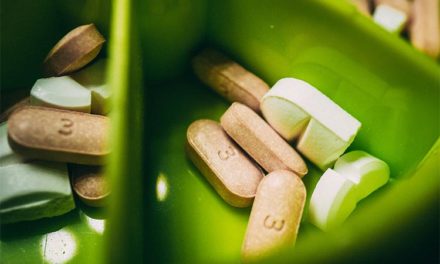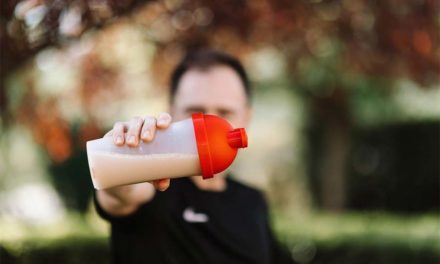Running is a democratic sport, not only in terms of equipment – put on running shoes and ran – but also in terms of nutritional requirements. However, without some sports supplements, it is more difficult for a runner to show a good result. In addition, Rule 1 supplements can be difficult to include a full range of essential trace elements in the daily diet.
We recommend that before taking sports supplements with smart diet solutions, contact a nutritionist and do a complete blood test for the content of trace elements and vitamins in the body. This will help balance nutrition and fill those needs that the body really needs.
Please note: Contraindications for taking sports supplements are allergies, diseases of the gastrointestinal tract, metabolic disorders, diabetes, chronic diseases of the heart, kidneys, and liver.
Protein
Protein is needed for building muscle tissue and strong immunity. In the case of runners, it is relevant mainly for vegetarians, because meat-eaters get enough of it from food. Protein is enough for runners in the amount of 1-1.5 grams per kilogram of body weight per day. During intensive training, it is worth increasing to 2 grams per day.
Omega-3
Omega-3 has a wide range of positive properties: accelerating metabolism, improving lipolysis, suppressing catabolism, reducing inflammation in the joints and ligaments, etc. Nutritionists recommend consuming 1 gram of omega-3s per day.
Vitamin and mineral complexes
The balance of vitamins and minerals greatly affects the biochemical processes in the body and muscle tone, so without enough of them, you will be tired, drowsy, and simply will not be able to train. They can be obtained with food, but for this, you need to constantly monitor the balance of the diet. In addition, the quality of the same vegetables is not always in order – growing several years in a row on the same soil, hydroponics and artificial acceleration of growth lead to the fact that vegetables do not have enough microelements.
Amino acid complexes
Amino acid complexes are the elements into which protein breaks down during digestion. Amino acids help in the production of important hormones, antibodies, and enzymes, increase protein synthesis, inhibit catabolism and burn fat. By taking amino acids, we do some of the work of processing products instead of the body, so recovery is less energy-intensive than when we eat meat.
Usually, amino acids are taken by runners who do a lot of work (accelerations, long workouts, uphill runs) when they feel that the muscles have been overstuffed and it is difficult to raise their legs after a workout.
Complex amino acids are produced in the form of capsules, tablets, and caplets. Usually, they are recommended to take 2-3 capsules 2 or 3 times a day.
L-carnitine
L-carnitine moves fatty acids into the mitochondria of our cells where they are burned. L-carnitine is used for weight loss, it also increases stamina (by triggering fat metabolism) and maintains a healthy state of the cardiovascular system. Runners use it on responsible long starts, or long special works to increase endurance.
The body quickly gets used to taking carnitine and stops producing this element on its own, so you should not take it often.
Creatine helps maintain ATP/ADP (energy) levels in cells. It improves short-term strength performance during training, helps increase body endurance, inhibits the release and action of lactic acid, and helps muscles restore energy after exercise. Of the runners, it is suitable mainly for sprinters.
Creatine is neutralized by caffeine, so taking them together does not make sense. How much this drug affects performance can only be understood by trying it on yourself.
Glucose tablets
Glucose tablets are fast-digesting and fast-acting carbohydrates. A glucose tablet is enough for a short acceleration at the finish line or uphill.
Energy gels
Energy gels usually consist of fast and slower carbohydrates. They are needed so that the body can maintain fat metabolism, that is, receive energy from fat over long distances.
For beginners who have a small supply of glycogen in the body, they are relevant when running for more than 40 minutes. Professional athletes increase their glycogen stores by training and can run for up to two hours without burning fat. It is very simple to determine when it is time to eat the gel – when you are tired and your legs do not rise.
Runners usually do not eat gels during training. So the body understands that it needs a lot of energy and trains to accumulate more glycogen.
There are gels that last longer, but less intensively. In addition to carbohydrates, electrolytes can be included in the composition of the gels, so the gel begins to act as an isotonic.
Even the composition of the gel sometimes includes substances that tonic the nervous system: caffeine, guarana extract, etc. Such gels are taken when you need to wake up the nervous system, for example, when you start to want to sleep. With tonic substances, you need to be careful in hot weather, because they put an additional strain on the heart. You should not use them every day, because the body gets used to it and the effectiveness is lost. In addition, caffeine has been added to the WADA shortlist and may soon become doping.
Summary
When you start exercising, notice that the body’s need for nutrients increases. They can be obtained from both regular food and sports supplements. In general, recreational runners do not need to take any sports nutrition all the time, but it can help balance the diet.
In training, we recommend drinking isotonic. It helps to restore the water-salt balance in the body, prevent muscle cramps and maintain performance.
At responsible starts, nutrition depends on the length of the distance. In sprinting, creatine helps to increase strength for a short time. At medium and long distances, L-carnitine increases endurance, and gels do not let you get hungry. The ultra-long – bars help to reach the end.















